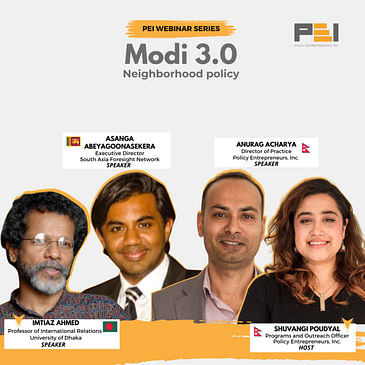PEI- Modi 3.0: Is neighborhood still first? Unpack the evolving India-South Asia dynamic as Modi enters his third term as Prime Minister. PEI brings a curated panel of experts from India, Nepal, Sri Lanka, and Bangladesh to dissect the regional shifts for a can't-miss panel discussion. The conversation is a part of the PEI Webinar Series on Managing India, China, and the US.
If you liked the episode, hear more from us through our free newsletter services, PEI Substack: Of Policies and Politics, and click here to support us on Patreon!!




